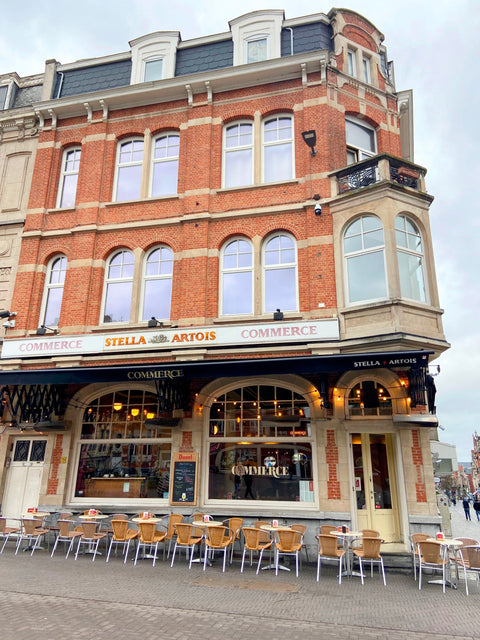A Legacy of Hospitality
Founded in 1864, Café Commerce has been a cornerstone of Leuven’s social and cultural life for more than 150 years. More than just a café, it has long served as a welcoming place where students, intellectuals, and community members gathered to share ideas and enjoy each other’s company.

A Hub for Community & Associations
In its early years, Café Commerce played host to many associations. The first floor was transformed into a meeting and banquet hall, welcoming groups like the National Association of Former Military Men of Leuven and the Trade Union of Tailors. This helped establish the café as a central meeting place in Leuven’s civic life.
Students & Intellectual Movements
Before World War I, Café Commerce became the home of the Flemish student movement Amicitia (1911–1914). Dedicated to intellectual growth and moderate habits, the group earned both admiration and playful mockery, showing the café’s unique role in Leuven’s student culture.
Resilience Through War & Reconstruction
In August 1914, Café Commerce, along with many buildings on Graanmarkt (now Herbert Hooverplein) and Volksplein (now Ladeuzeplein), was destroyed in fires set by German forces. Yet the café rose again—rebuilt in 1921 by architect Frans Vandendael and reopened under the management of Edmond Robertz, continuing its legacy of resilience.
A Timeless Leuven Landmark
Today, Café Commerce is still one of Leuven’s most iconic cafés, blending tradition with modern hospitality. Its rich past and cultural significance make it far more than a place to grab a drink—it is a living symbol of Leuven’s enduring spirit.


Source: Information was gathered from the infp-board at the Cafe Commerce, February 2024.
Photos by Aslı Tezcan



